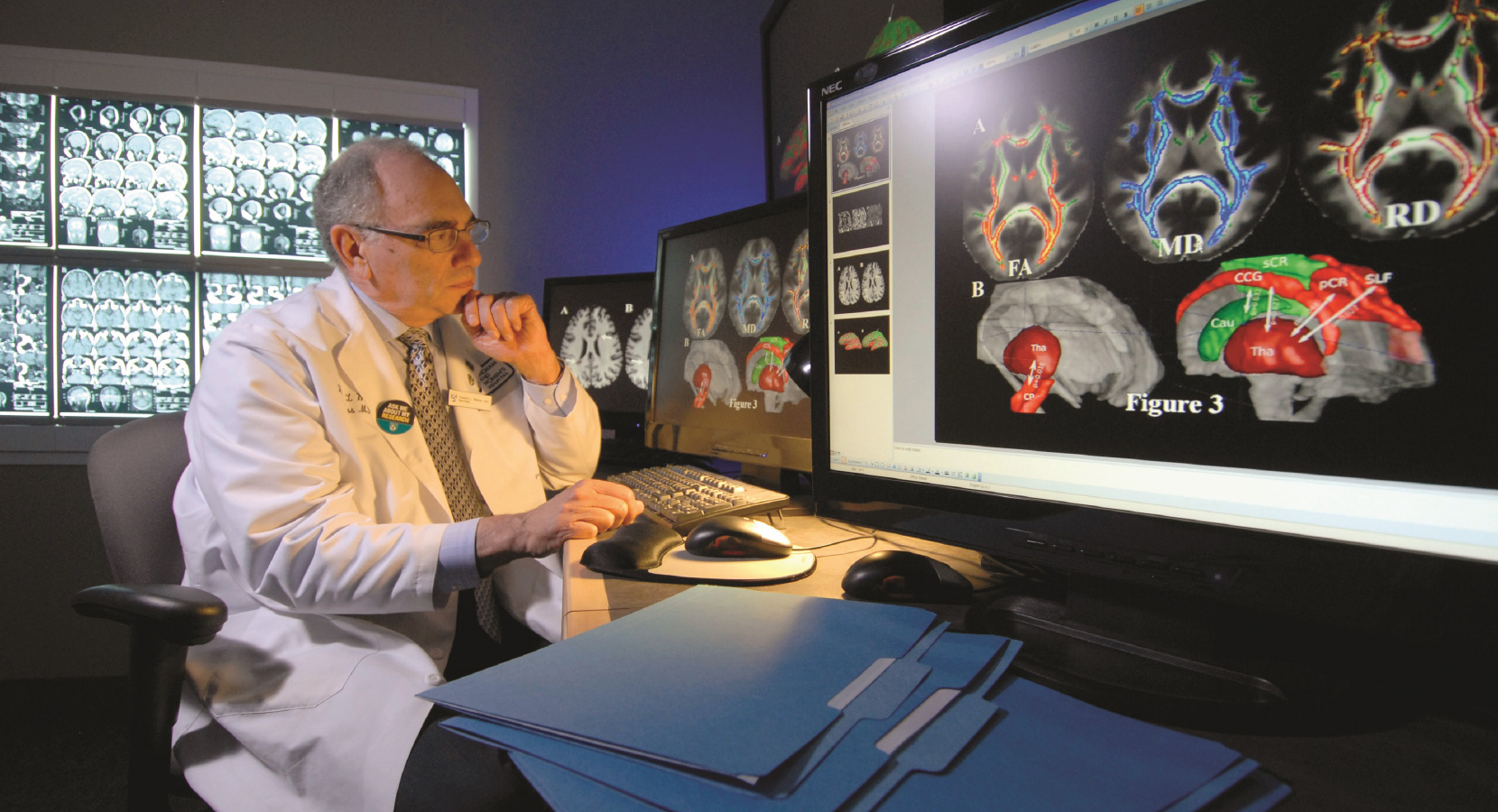
National MS Society Funds Research Collaboration
For nearly four decades, Howard L. Weiner, MD, has pushed the boundaries of care for multiple sclerosis (MS) through research. A disease of the central nervous system that disrupts communication between the brain and other parts of the body, MS can cause people to lose their ability to see clearly, write, speak, or walk. Symptoms and severity vary from person to person.
Weiner—director and founder of the Partners Multiple Sclerosis Center and co-director of the Ann Romney Center for Neurologic Diseases at Brigham and Women’s Hospital—pioneered the use of immunotherapy in MS, and leads a team of clinical and research experts to continue advancing treatment.
Recently, the National Multiple Sclerosis Society awarded Weiner a grant for $1.375 million to help find effective treatments for progressive MS, a particularly aggressive form of the disease. The grant supports the Serial Unified Multicenter Multiple Sclerosis Investigation (SUMMIT) consortium, started in 2012 by BWH and the University of California at San Francisco to collaborate with international MS centers and closely follow thousands of people with MS.
“MS is a chronic disease that patients live with and manage for many years,” says Weiner. “We don’t yet fully understand who will respond most effectively to certain available treatments, or how to predict whose disease will progress and when. This work will help us answer these key questions.”
For the next 15 years, the SUMMIT consortium will track patient information, including MRI scans and blood samples, to examine potential triggers and risk factors for MS progression and determine the most appropriate treatment options.
“Dr. Weiner and this team are focused on one of the most difficult challenges in MS research today,” says Cyndi Zagieboylo, president and CEO of the National MS Society, the world’s largest private non-profit funder of MS care and research. “We are confident he and his colleagues will find answers that help to treat, and ultimately prevent, progressive MS.”
Adds Weiner, “One day, every patient in the world will be able to access what we’ve created. And doctors will be able to access the data to help understand the best way to treat people with MS.”